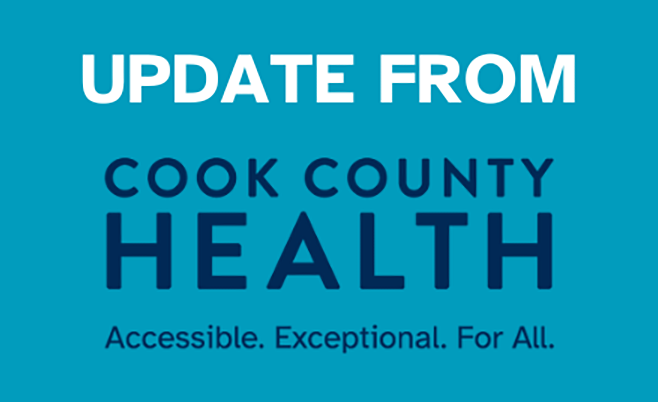April 10, 2018
April 10th is National Youth HIV & AIDS Awareness Day, a day to call attention to the impact HIV/AIDS has had on young people in the United States. It is also a time to encourage young people to get educated on how they can prevent getting HIV and where they can go to get tested or get treatment if they have already been diagnosed with the virus.
Young people ages 20 to 29 years old represented 40 percent of new HIV diagnoses in Chicago in 2016, and they were the age group with the largest percentage of late diagnosed individuals, said Dr. Sybil Hosek, a clinical psychologist and HIV researcher at Cook County Health (CCH).
In addition, more than half of the youth who are living with HIV don’t know it—the highest rate of undiagnosed HIV in any age group. And they are the least likely of any age group to be linked to medical care, according to the U.S. Centers for Disease Control and Prevention.
Youth aged 20 to 24 also have some of the highest rates of sexually transmitted infections (STI), especially youth of color, Dr. Hosek said. The presence of another STI greatly increases the likelihood that a person exposed to HIV will become infected.
Among youth, most of the new HIV cases occurred in gay and bisexual males in 2015, particularly those who were African-American or Hispanic/Latino. Transgender women and women of color also have high rates of HIV infection.
“Overall, while fewer Americans are becoming infected with HIV, key populations of young people continue to bear a disproportionate burden of the disease,” said Dr. Hosek. “There is still a lot of work to be done, nationally and locally, to get down to zero new HIV infections, especially among young people.”
For example, results from the most recent national Youth Risk Behavior Survey show that close to half (44 percent) of sexually active high school students in Illinois did not use a condom the last time they had intercourse – and 85 percent had never been tested for HIV, Dr. Hosek pointed out.
“Outreach efforts focused on engaging, educating, and empowering youth to get tested and take control of their sexual health are urgently needed,” Dr. Hosek said.
One way youth can take control of their sexual health is by getting knowledgeable about the HIV-preventive medication called PrEP, which has been shown to reduce the risk of HIV transmission by over 90% for people who are at high risk for becoming infected, Dr. Hosek said. Studies have shown that people younger than 24 years of age have low rates of taking PrEP as instructed.
“With that in mind, it’s critical that young people who are interested in PrEP talk to their doctors, but it is equally important that doctors start the discussion about sexual behavior with their young patients,” Dr. Hosek said. “We can’t just wait for youth to come to us—we have to bring these messages to the youth.”
Dr. Hosek also encouraged young people to get involved in research aimed at ending the HIV epidemic. Cook County Health’s Adolescent & Young Adult Research has a list of active studies at its website, ayaresearch.org.
For anyone interested in learning more about PrEP, CCH has PrEP clinics at four of its facilities: Ruth M. Rothstein CORE Center, Austin Health Center, Dr. Jorge Prieto Health Center and Provident Hospital.
As the largest provider of care to people living with HIV in the Midwest and one of the largest in the country, CCH also offers a variety of other services, including confidential counseling and testing for HIV and other sexually-transmitted diseases and HIV/AIDS treatment. Visit CORE Center’s Patient & Visitor Services for more information.

